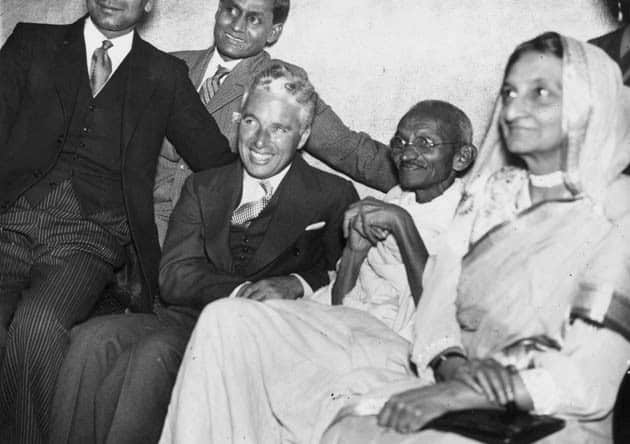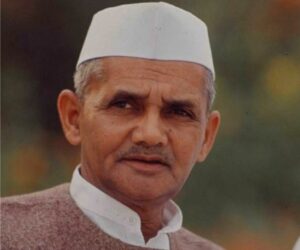
One of the most iconic meetings in history took place when Mahatma Gandhi, the revered leader of the Indian independence movement, crossed paths with the legendary silent film actor, Charlie Chaplin. This momentous event occurred on September 20, 1931, during Gandhi’s visit to London for the Second Round Table Conference.
Gandhi, known for his philosophy of nonviolence and his tireless efforts to attain freedom for India, had captured the attention and admiration of people worldwide. On the other hand, Charlie Chaplin was an international sensation, renowned for his comedic genius and portrayal of the iconic character “The Tramp.”
During Gandhi’s visit, he expressed his desire to meet Chaplin, as he believed that Chaplin’s films and performances had a profound impact on the human conscience. Recognizing the significance of this meeting, arrangements were made for the two influential figures to come together.
When they finally met, the encounter was marked by a sense of mutual respect and admiration. Despite their differing backgrounds and areas of expertise, Gandhi and Chaplin found common ground in their shared pursuit of justice and their commitment to speaking out against social injustices.
The meeting between Mahatma Gandhi and Charlie Chaplin symbolized the power of art and activism coming together. It highlighted the potential of influential individuals to inspire change and make a positive impact on society. The event also emphasized the significance of their respective contributions in shaping the world’s collective consciousness.
This historic meeting left an indelible mark on both Gandhi and Chaplin. It served as a testament to the universal appeal of their messages and the profound impact they had on people’s hearts and minds. Their encounter became a symbol of the potential for collaboration and solidarity across borders and disciplines.
The meeting between Mahatma Gandhi and Charlie Chaplin remains a powerful reminder of the enduring influence and legacy of these extraordinary individuals. It stands as a testament to their unwavering commitment to their principles and their unwavering belief in the power of humanity to bring about positive change.
References:
- “When Mahatma Gandhi met Charlie Chaplin.” The Hindu. [Online]. Available: https://www.thehindu.com/todays-paper/tp-features/tp-metroplus/When-Mahatma-Gandhi-met-Charlie-Chaplin/article15301463.ece
- “Mahatma Gandhi and Charlie Chaplin – A Historic Encounter.” India Today. [Online]. Available: https://www.indiatoday.in/education-today/gk-current-affairs/story/mahatma-gandhi-charlie-chaplin-historic-meeting-220136-2013-09-20







